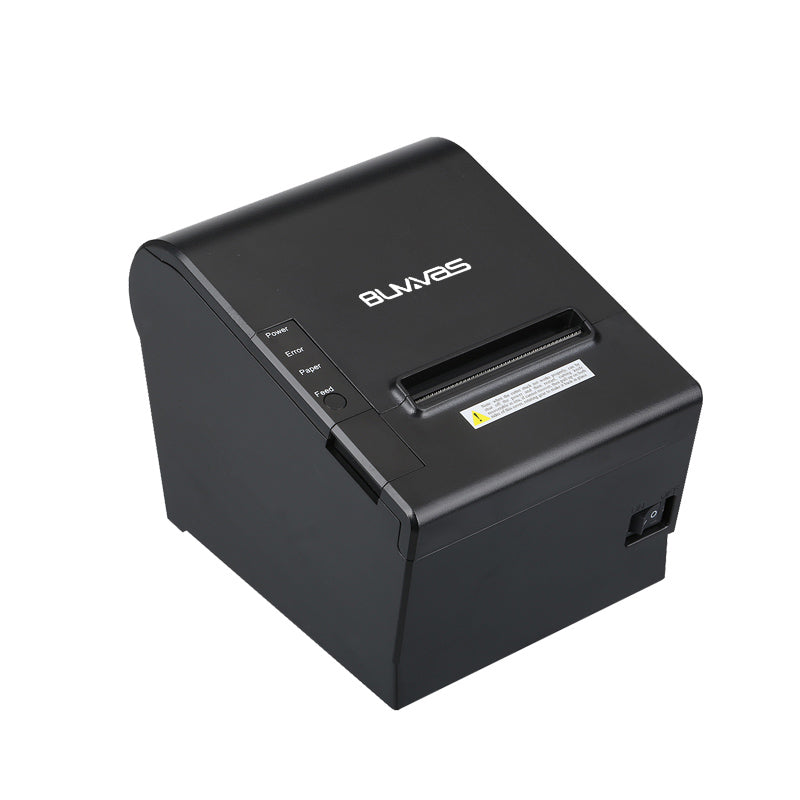
How Barcode Scanners Improve Inventory Accuracy in Stores
Share
Introduction
Inventory management is the backbone of any retail operation. Poor inventory control can lead to stockouts, overstocking, and financial loss. Fortunately, technology has made it easier to manage inventory accurately, and barcode scanners play a key role in this process. Whether you're running a small shop or a large retail chain, investing in the best barcode scanner for retail can greatly improve your store's operational efficiency and inventory accuracy.
In this blog, we'll explore how barcode scanners work, their role in improving inventory accuracy, and how to select the right inventory scanner for your retail business.
What Is a Barcode Scanner?
A barcode scanner is an electronic device that reads printed barcodes and converts them into digital data. It helps track products, manage stock levels, and streamline sales operations. When connected to a POS or inventory system, it allows retailers to automate item entry, price checking, and stock updates.
Types of Barcode Scanners Used in Retail
1. Handheld Barcode Scanners
- Most commonly used in retail counters.
- Easy to point and scan multiple products.
- Suitable for daily operations and billing.
2. Wireless Barcode Scanners
- Offer mobility across large store floors or warehouses.
- Reduces clutter of cables.
- Best for inventory audits and stock room management.
3. 2D Barcode Scanners
- Read QR codes and complex barcode formats.
- Used for loyalty programs, digital coupons, and product info.
4. Presentation Barcode Scanners
- Hands-free operation at billing counters.
- Ideal for high-traffic retail environments.
How Barcode Scanners Improve Inventory Accuracy
1. Faster Inventory Counting
- Scanning is significantly quicker than manual counting.
- Speeds up periodic stock audits and daily inventory updates.
2. Real-Time Stock Updates
- Inventory scanners update stock levels instantly.
- Reduces time lags between sales and inventory records.
- Helps in maintaining accurate stock positions.
3. Error-Free Data Entry
- Manual entries are prone to mistakes.
- Barcode scanners eliminate human error, ensuring accurate product info and counts.
4. Automated Reordering Alerts
- Scanners integrated with inventory systems trigger low-stock alerts.
- Prevents stockouts and keeps shelves full.
5. Accurate Sales Records
- Ensures every scanned item is recorded correctly.
- Helps reconcile inventory with sales and avoid shrinkage.
6. Simplified Stock Transfers
- Barcode scanners simplify the process of moving stock between store locations or warehouses.
- Tracks products during transfers, reducing misplacement.
7. Supports Inventory Forecasting
- Historical data from barcode scans improves demand forecasting.
- Enables smarter purchasing decisions and reduced dead stock.
Benefits of Using Barcode Scanners in Retail
1. Enhanced Inventory Control
- Improves visibility into stock levels.
- Enables precise decision-making on reordering and stocking.
2. Better Customer Service
- Faster billing and price checks enhance the shopping experience.
- Avoids long wait times due to manual data entry.
3. Increased Operational Efficiency
- Staff spend less time on inventory tasks.
- Frees up time for customer engagement and sales activities.
4. Cost Savings
- Reduces labor costs associated with manual inventory.
- Avoids losses from overstocking or missing items.
5. Improved Compliance and Reporting
- Accurate tracking helps with taxation, audits, and compliance.
- Generates detailed reports for business analysis.
Key Features to Look for in the Best Barcode Scanner for Retail
1. Scanning Speed and Accuracy
-
Choose a scanner with fast read rates and high precision.
2. Connectivity Options
-
USB, Bluetooth, or wireless options based on your setup.
3. Durability
-
Look for drop-tested and rugged designs if used in busy environments.
4. Compatibility
-
Must integrate with your existing POS or ERP system.
5. Battery Life (for wireless scanners)
-
Long battery life ensures uninterrupted inventory sessions.
6. Ease of Use
-
Simple trigger button, plug-and-play setup, and lightweight design.
Industries That Benefit from Barcode Scanners
- Retail Stores: From billing to shelf audits.
- Pharmacies: Track medicine expiry and batch numbers.
- Supermarkets: Manage high-volume inventory and offers.
- Apparel Stores: Monitor sizes, colors, and product variants.
- Electronics Stores: Accurate tracking of serial numbers and warranties.
How to Implement Barcode Scanners in Your Store
- Choose the Right Scanner: Match your scanner to your business size and needs.
- Integrate with Inventory Software: Sync scanner with POS or inventory management tools.
- Train Your Staff: Ensure proper usage to avoid errors.
- Label All Products: Use standard barcode formats for scanning.
- Monitor and Optimize: Analyze scanner data to improve stock decisions.
Why Choose Barcode Scanners from Buvvas?
At Buvvas, we offer reliable and advanced inventory scanners for retail and warehouse use. Our products are:
- Compatible with all major POS systems
- Available in wired and wireless models
- Backed by technical support and warranty
- Designed for speed, durability, and ease of use
Top Models We Offer:
- Buvvas SF-301: Entry-level wired scanner for billing counters
- Buvvas HS-589: Wireless handheld scanner with long-range scanning
- Buvvas 2D Pro: Scans barcodes and QR codes with speed and precision
Conclusion
Using barcode scanners in retail stores is no longer optional—it’s essential for accurate inventory management, improved checkout experience, and streamlined operations. With features like real-time tracking, error-free entries, and integration with POS systems, the best barcode scanner for retail can make a significant difference in your business performance.
Investing in a quality inventory scanner from Buvvas helps you gain better control over your stock, reduce shrinkage, and ensure customer satisfaction through faster and smarter service.

